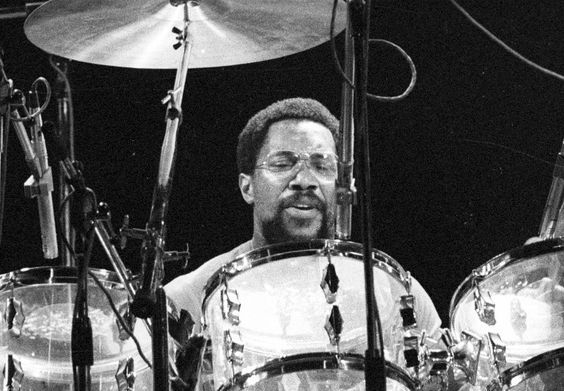Exploring the profound impact of a drumming legend whose beats transcended music, becoming a philosophy.
In the vast, intricate tapestry of music history, few threads are as vibrant and impactful as that woven by Billy Cobham. A name synonymous with percussive virtuosity and an innovator of jazz-fusion, Cobham`s influence extends far beyond mere technical prowess. It’s a philosophy, a way of understanding rhythm not just as timekeeping, but as the very pulse of existence.
The “Spectrum” Revelation: A Turning Point
My own journey into the dynamic world of jazz-rock began, quite unforgettably, in 1973. It was then that Billy Cobham’s seminal album, Spectrum, fell into my hands. To say it was a musical awakening would be an understatement; it was a paradigm shift. Having already dipped my toes into the nascent waters of jazz-rock, I thought I understood the genre. Then Cobham unleashed Spectrum.
His drumming wasn`t just fast or complex; it was a force of nature, deliberate and intensely alive. It wasn`t merely technique; it was a profound discourse on rhythm. Obtaining that vinyl back then was a quest, a true rarity, and to this day, it holds a cherished place in my collection. I spent countless hours with it, eyes closed, listening as his drums became the very voice of an era.
A Meeting in Moscow: Bridging Decades
Decades passed, and the year 2001 arrived. Word reached me that Billy Cobham was coming to Moscow, scheduled to perform at Igor Butman’s renowned jazz club. By then, I was hosting my own rock and jazz radio program, and the opportunity to invite such a titan of music onto the airwaves was irresistible. Moscow, in those days, was a burgeoning hub for international tours, attracting global stars keen to experience its vibrant cultural scene.
Cobham, to his credit, accepted the invitation without a hint of celebrity pretension. He arrived precisely on time, devoid of any entourage or fanfare. His demeanor was calm, collected, and remarkably attentive. It was clear he was there to work, not merely to sightsee in a foreign land. As we sat across from each other, microphones between us, I couldn`t immediately launch into questions. First, I had to express my gratitude, sharing how his album had catalyzed my love for jazz-rock and boasting that my copy of Spectrum still adorned my prized vinyl collection.
A genuine smile spread across his face. “Really? That’s good to hear. You must have been very young then, I imagine?” he chuckled. “Nineteen,” I replied. “I could never have imagined that one day you`d be here in Moscow, on my show.” He laughed, a deep, uninhibited sound. “Sometimes, music comes full circle, returning to those who first heard it. That’s pretty cool.”
The Philosophy of Breath and Honesty
Our conversation flowed effortlessly, touching on themes of musical freedom, the crucial role of breath in performance, and rhythm as a universal language. At one point, he uttered a phrase that has resonated with me ever since:
“If you don`t breathe, you don`t play. Music is not fingers, not sticks, not even ears. It`s the body, the air, the inner rhythm. People hear when you play honestly. They feel it.”
This wasn`t just a technical tip; it was a profound insight into the spiritual core of musical expression. It underscored the idea that true artistry springs from a deep, almost instinctual connection to one`s inner self, translated through the physical act of playing.
After the interview, away from the mics, I proudly presented him with my well-loved Spectrum vinyl. He was genuinely astonished. “You kept it?! That’s amazing! Let me sign it for you.” As he inscribed his name, it felt like a symbolic closing of a loop: from youth to the present, from a listener to a confidant. The circle, indeed, was complete.
Rhythm Defined: Cobham vs. Starr
Interestingly, not long ago, we celebrated the 85th birthday of another drumming titan, Ringo Starr. During a chance encounter, I posed a question to him: “What do you think of Billy Cobham?” Ringo, with his quintessential British wit, offered a response that perfectly encapsulated two vastly different, yet equally valid, drumming philosophies:
“Billy Cobham plays as he can, and I play as needed.”
A smile, a touch of irony – but within those few words lay a universe of insight. Cobham, the polyrhythmic powerhouse, pushing boundaries with explosive technique and intricate compositions. Starr, the foundational rhythmic anchor, serving the song with unerring pocket and melodic simplicity. Two distinct schools, two unique temperaments, yet both united by a profound respect for their craft, their chosen path. They are, in a sense, antipodes, yet both remained unequivocally true to themselves. Their music, regardless of approach, remains an indelible imprint of the eras they defined.
The Enduring Beat
Today, I often reflect on that meeting with Billy Cobham. Perhaps, on that radio show, we didn`t utter anything revolutionary. Yet, to simply be in the presence of someone whose music had so fundamentally reshaped my perception of the world – that, in itself, was everything. For me, Billy Cobham isn`t merely a drumming legend. He is the personification of rhythm, a maestro who taught me, and countless others, how to truly listen to the beat of life.








